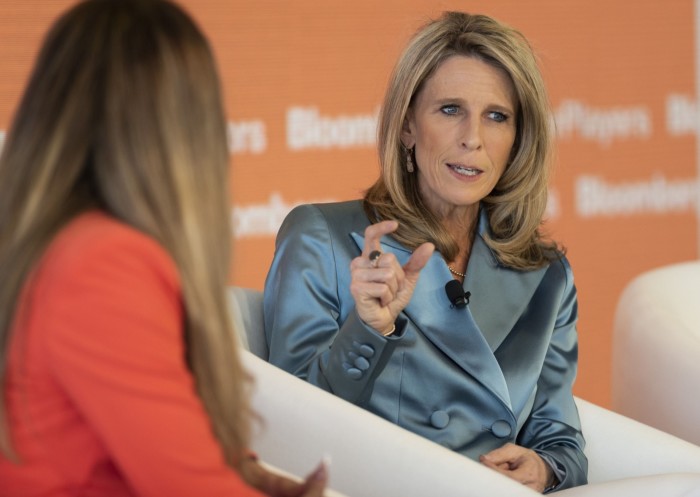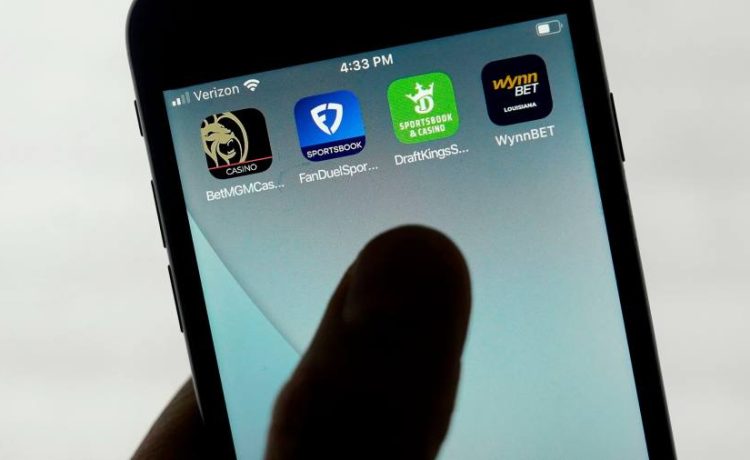FanDuel, DraftKings and BetMGM, the US’s biggest online betting brands, are used to benefiting from one of the main rules of gambling: the house always wins. But on Tuesday night in California, after a big push to convince voters to legalise online sports wagering, they lost resoundingly.
Californians rejected the ballot measure, known as Proposition 27, by a margin of 83.4 per cent to 16.6 per cent with two-fifths of precincts declared, capping the most costly referendum battle in US political history, which was fought via a barrage of competing 30-second television advertising spots.
The industry-backed “Yes on 27” campaign stumped up $169mn in an effort to sway voters, of which the three leading betting companies contributed about two-thirds of the total. Their opponents — more than 50 local Native American tribes for whom casinos are an essential source of revenue and employment — spent $237mn to defend the status quo.
“These out-of-state corporations have gotten arrogant,” said Dan Little, chief intergovernmental affairs officer at the San Manuel Band of Mission Indians, one of the biggest gaming tribes. “They overplayed their hand — they could have worked with us and they didn’t — and they lost miserably.”
Gambling executives have long had their sights set on California, which has 15 major league sports teams and an economy almost as large as Germany’s.
If the ballot motion had passed, it would have created the US’s biggest sports betting market, with annual revenues of almost $3bn, according to projections by Eilers & Krejcik Gaming.
However, dire polling numbers released over the summer meant Tuesday’s result was a foregone conclusion, with the pro-Prop 27 campaign cancelling more than $10mn worth of adverts in the weeks leading up to November 8.
“I have never seen anything in my career that’s this big of a flop,” said Chad Beynon, a gaming industry analyst at Macquarie Group. “If they barely managed 30 per cent [of votes] with hundreds of millions spent, how much more are they going to have to spend to get it passed? We are arguably further away from legal sports betting [in California] than we were before the campaign.”
After four years of breakneck expansion in the aftermath of the Supreme Court decision to overturn a 1992 federal law banning commercial sports betting, the defeat in California represents a big setback for the nascent industry.
About 35 states have now approved sports betting but the US’s three most-populous states — California, Florida and Texas — have baulked. “These big states would really move the needle,” said Beynon.
He added that the referendum defeat in California would “hurt the momentum” of a growing industry and had made the more profitable online casino-style gambling, which is so far only available in six states, “an even more distant prospect”. Seven states have had a chance to vote on sports betting; California is the only one to reject it at the ballot box.
In a tacit admission of defeat, industry executives had in recent weeks started to shift their focus on getting a similar ballot measure passed in the state in 2024.

Speaking on a panel at Las Vegas’s Global Gaming Expo last month, Jason Robins, chief executive of DraftKings, said there was “more momentum” towards a victory in 2024. His fellow panellist Amy Howe, FanDuel’s chief, agreed: “We believe there is a path to get there.”
California first flirted with legalising sports betting in 2019 when an initiative to allow it in certain outlets and casinos was put before the state Senate. But that year, and again in 2020, the measure was pulled before even making it to a vote because of the tribes’ opposition.
Certain tribes then launched their own campaign for this year’s election. By May 2021, they had gained enough signatures to put their motion to voters.
Known as Proposition 26 (Prop 26), it would have allowed in-person sports betting on Native American lands but it was also rejected on Tuesday, with 70.4 per cent of the electorate voting against it. The measure failed in large part because it was tarnished by the success of the anti-Prop 27 campaign, say analysts.
Pro-Prop 27 campaigners argue that despite the measure’s defeat, the gambling companies needed to stake their claim to online sports betting in California, whenever it arrives.
“Our coalition knew passing Prop 27 would be an uphill climb, but we remain committed to California,” said Nathan Click, spokesperson for the Yes on 27 campaign. “This campaign has underscored our coalition’s resolve to seeing California follow more than half the country in legalising safe and responsible online sports betting.”
The Prop 27 campaign, which was officially named California Solutions to Homelessness and Mental Health Support Act, centred on how an estimated $500mn annual tax windfall would bolster state coffers and allow for more social welfare spending.
But voters “saw right through this disingenuous claim”, according to James Siva, chair of the California Nations Indian Gaming Association. “I think most voters are aware of the billions of dollars the state spends themselves on homelessness, so they didn’t believe that a slight uplift in funding would really change that.”

California’s politicians from both ends of the political spectrum also presented a united front against the measure. Last month, governor Gavin Newsom said Prop 27 was “bad” for the state and said it would “hurt” Native American tribes.
“This was one of the rare circumstances when both Democratic and Republican legislators came out against [a measure],” said Mark Baldassare, president and chief executive of the Public Policy Institute of California, which conducted polling on the issue.
Now, the gambling industry has been left asking what is the best path forward in the region and beyond.
Casey Clark, senior vice-president at the American Gaming Association, an industry body, insisted that California was “not a bellwether” for the remaining states yet to legalise online sports betting.
“It shouldn’t surprise anybody that it’s going to take a while to understand what’s right for the constituency in California, Texas and Florida,” said Clark, pointing to the large anti-gambling movement in the Lone Star state and the exclusivity that tribes have over gambling rights in the other two states.
“I do think we will get to a place where almost all American adults who want to bet on sports get to do that closer to home,” added Clark. However, he admitted: “It will take more education for people to understand and get comfortable with [online casino gaming].”
For the industry, online casino gaming represents the ultimate prize. Revenues per capita from online gambling in the US stand at $135, 3.6-fold higher than the per head revenues from online sports betting. But only 11 per cent of the US population have access to online gambling, compared with 40 per cent who can bet online on sports.
Paul Leyland, an analyst at Regulus Partners, said he was “deeply sceptical” about the growth prospects of the gambling industry in the US.
After surging during the first year of the pandemic, the share prices of some of the main online betting companies have dropped significantly over the past year. DraftKings’ shares, for instance, were valued at $12.59 on Tuesday, down 80 per cent from their peak in early 2021.
“So far, only low-hanging-fruit states have approved iGaming in the US,” said Leyland. “But if there were a critical mass of states adopting iGaming then we’re in a totally different ballpark.”
“If we are losing momentum on sports betting then it might be tough to get online gaming going,” said Macquarie’s Beynon.
But after Tuesday’s defeat in California, the most immediate question for the gambling industry is how to reinvent their campaign for another shot at wooing voters.
Peter Jackson, Flutter’s chief executive, told the Financial Times that the result was “frustrating” but insisted the industry “can be patient”. “There’s already nearly 40 per cent of Americans living in states where sports betting is allowed and the path to greater penetration will take a bit of time. It’s hard to imagine sports betting won’t include California in time . . . everyone is sports mad.”
Prop 27 included a pledge from operators to partner with local tribes. Tribes’ leaders said they would be open to a compromise in future, but that would involve the gambling corporations giving ground on revenue sharing.
“Their greed could stop a compromise from happening,” said Siva. “If these guys understand that they’re going to have to be a little more humble then I think there’s a path. But if it’s the same approach in two years, it will be the same result.”







